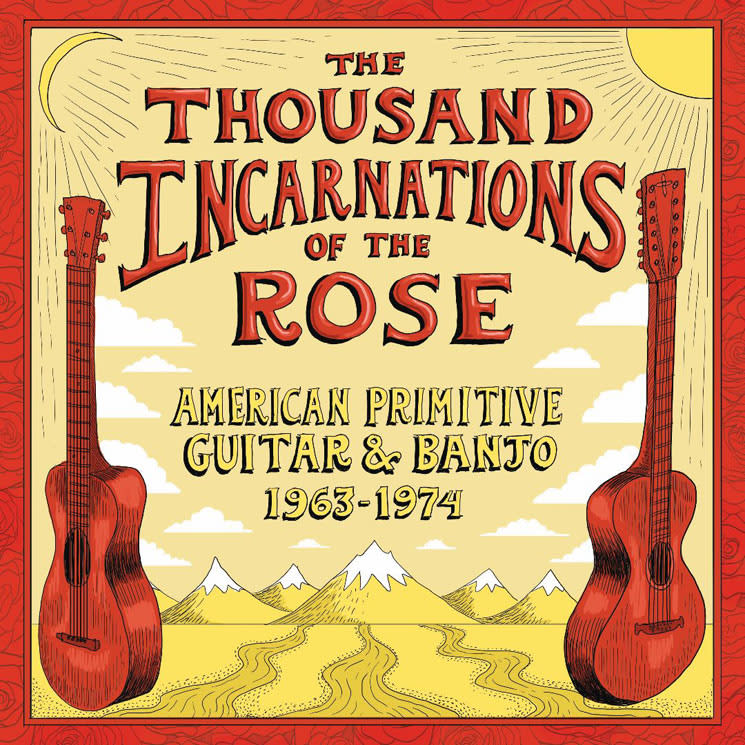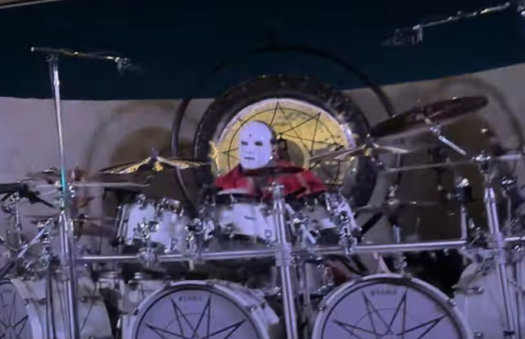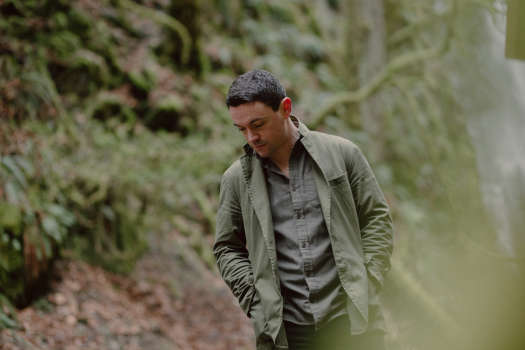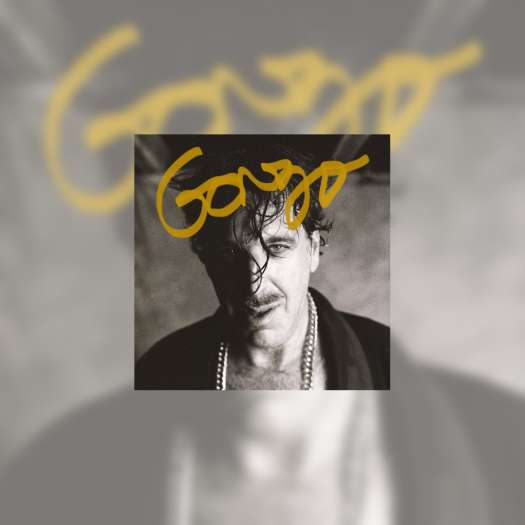Every time I think about so-called American Primitive guitarists, I think about cryptic critic Greil Marcus, who coined the term "old weird America" when talking about music like this. It recalls Voltaire's joke about the Holy Roman Empire — old weird America is neither, and American Primitive guitarists contain a history of American folk music, but are really neither too.
The circle of Robert Basho, John Fahey, George Stavis, Billy Faier and Max Ochs, among others, are not that weird, not that American, and as often played banjo as they did guitars. However, the work they made was gorgeous, vital and continually on fire.
They spun work considered primitive into tendrils of sound, looping back on tradition, transitioning fixed ideas of tempo and form into something previously unheard. There are a number of examples on this collection: Sandy Bull's variation on the Childe ballad, "Little Maggie," starts slow, almost stentorian, for the first half of its four-minute runtime. However, the song literally ramps up to double time halfway through, allowing the listener to note the work's slippery formalism. Bull was a jazz and new music player, and though the variations of the theme, or even the idea of Maggie is strong here, what is even more interesting is how much of this work fucks with American traditional forms. It is too new to be that primitive, though it hews close to those roots, on occasion.
That playful attitude towards traditionalism also complicates what is American in this context. For example, the Robert Basho compositions here incorporate Japanese philosophy with Indian classical forms. Basho, at least partially, learned Indian classical music and trained under crossover sitarist Ravi Shankar. Shankar's records were passed around hand-to-hand in this circle — taken perhaps more seriously than the Beatles flirtation with the same.
Basho was not the only one expanding American instrumentation into non-American directions. Also, on this record is John Fahey's "On the Banks of the Owichta," also found on his classic album, The Dance of Death & Other Plantation Favorites. This track is an elegant variation, somewhere between the quicksilver rhythms of a rag and the meditative returning found in classical raga. Peter Walker's "April in Cambridge" (perhaps with less success) also attempts to recast a very explicit time and space into an elegant internationalist form, it also is a raga. It is too concerned with ideas outside of America to be truly American.
These forms, the borrowing and implanting traditional Appalachian forms into global aesthetics, and how it turns bluegrass fingering into Indian devotional music, has an expansive spirit, tied onto a formal rigour, which has a normative quality. The work is not as weird as it might seem on initial listening.
The musicians are so good at what they are doing, and what they are doing is so prescribed, almost meditative, that what strikes one isn't weird or primitive, but a sophisticated, overcooked, beauty — with the most emphasis on beauty.
(Concord)The circle of Robert Basho, John Fahey, George Stavis, Billy Faier and Max Ochs, among others, are not that weird, not that American, and as often played banjo as they did guitars. However, the work they made was gorgeous, vital and continually on fire.
They spun work considered primitive into tendrils of sound, looping back on tradition, transitioning fixed ideas of tempo and form into something previously unheard. There are a number of examples on this collection: Sandy Bull's variation on the Childe ballad, "Little Maggie," starts slow, almost stentorian, for the first half of its four-minute runtime. However, the song literally ramps up to double time halfway through, allowing the listener to note the work's slippery formalism. Bull was a jazz and new music player, and though the variations of the theme, or even the idea of Maggie is strong here, what is even more interesting is how much of this work fucks with American traditional forms. It is too new to be that primitive, though it hews close to those roots, on occasion.
That playful attitude towards traditionalism also complicates what is American in this context. For example, the Robert Basho compositions here incorporate Japanese philosophy with Indian classical forms. Basho, at least partially, learned Indian classical music and trained under crossover sitarist Ravi Shankar. Shankar's records were passed around hand-to-hand in this circle — taken perhaps more seriously than the Beatles flirtation with the same.
Basho was not the only one expanding American instrumentation into non-American directions. Also, on this record is John Fahey's "On the Banks of the Owichta," also found on his classic album, The Dance of Death & Other Plantation Favorites. This track is an elegant variation, somewhere between the quicksilver rhythms of a rag and the meditative returning found in classical raga. Peter Walker's "April in Cambridge" (perhaps with less success) also attempts to recast a very explicit time and space into an elegant internationalist form, it also is a raga. It is too concerned with ideas outside of America to be truly American.
These forms, the borrowing and implanting traditional Appalachian forms into global aesthetics, and how it turns bluegrass fingering into Indian devotional music, has an expansive spirit, tied onto a formal rigour, which has a normative quality. The work is not as weird as it might seem on initial listening.
The musicians are so good at what they are doing, and what they are doing is so prescribed, almost meditative, that what strikes one isn't weird or primitive, but a sophisticated, overcooked, beauty — with the most emphasis on beauty.




